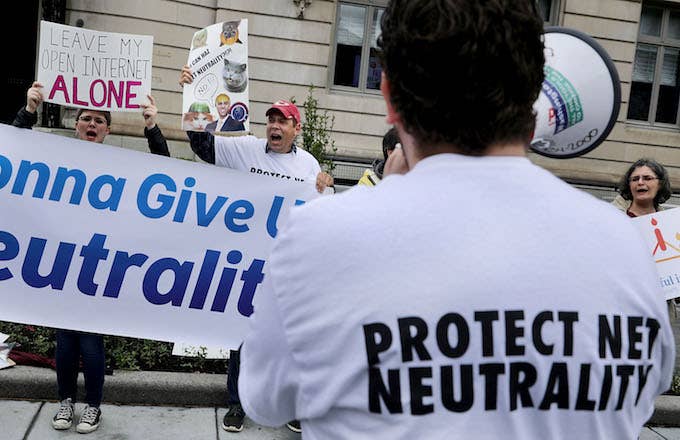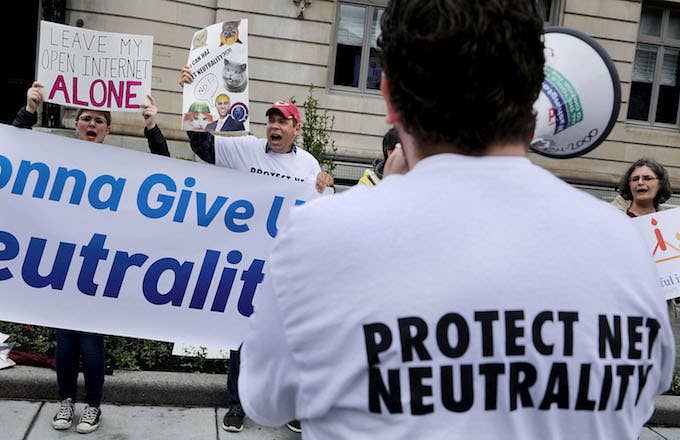
Net neutrality is in jeopardy.
On Tuesday, the Federal Communications Commission announced its plan to ditch Obama-era regulations that ensure all internet traffic is treated fairly. The rules, which were put in place in 2015, prohibit internet providers from blocking or slowing down access to certain content. It also bars them from giving preferential access to certain businesses or charging customers more to access certain websites. If the F.C.C. repeals these regulations, the country’s internet landscape could be drastically altered.
"Under my proposal, the federal government will stop micromanaging the internet," F.C.C. chairman Ajit Pai said in a statement to the New York Times. "Instead, the F.C.C. would simply require internet service providers to be transparent about their practices so that consumers can buy the service plan that’s best for them and entrepreneurs and other small businesses can have the technical information they need to innovate."
Many are pointing out that the repeal could cause a host of problems for the average consumer.
Though internet service providers like Comcast, Verizon, and AT&T can charge customers more for faster access speed, current net neutrality rules prohibit them from favoring certain content. If these regulations were dismantled, service providers could make it more difficult—or impossible—to access certain websites or data. For example, a provider that has a business interest with Hulu could severely slow down or block customers access to Netflix or Amazon Prime. As The Verge points out, this is especially concerning because "roughly 78 percent of Americans have either no high-speed access or just one provider." So if you’re provider has blocked or throttled access to a site you frequent, you’re pretty much out of luck.
Politicians, political commentators, and businesses have expressed their concerns regarding the potential repeal.
Ajit Pai was appointed by Trump to the F.C.C. chairman post in January. The F.C.C. will vote to overturn the regulations on Dec. 14.

